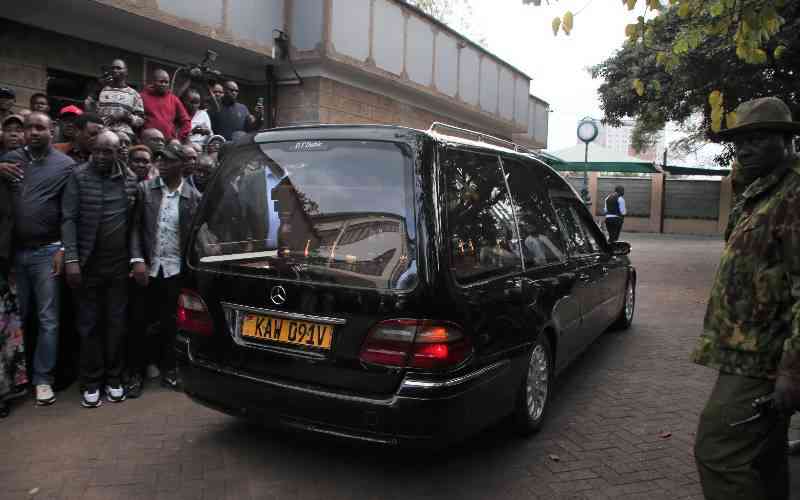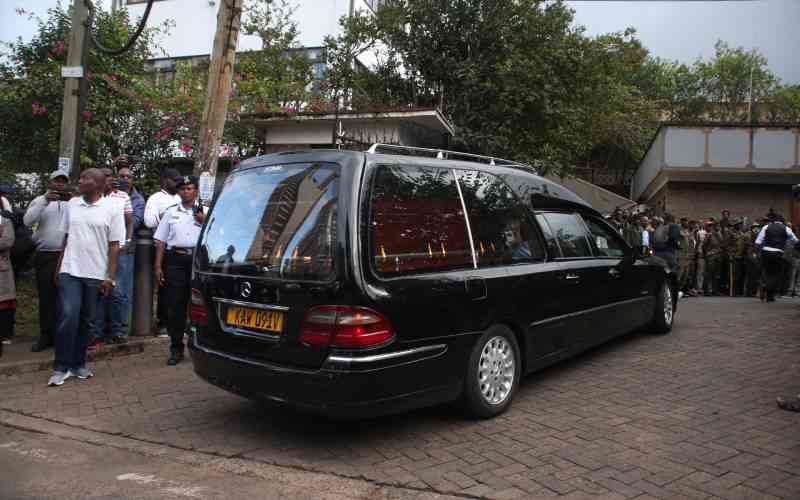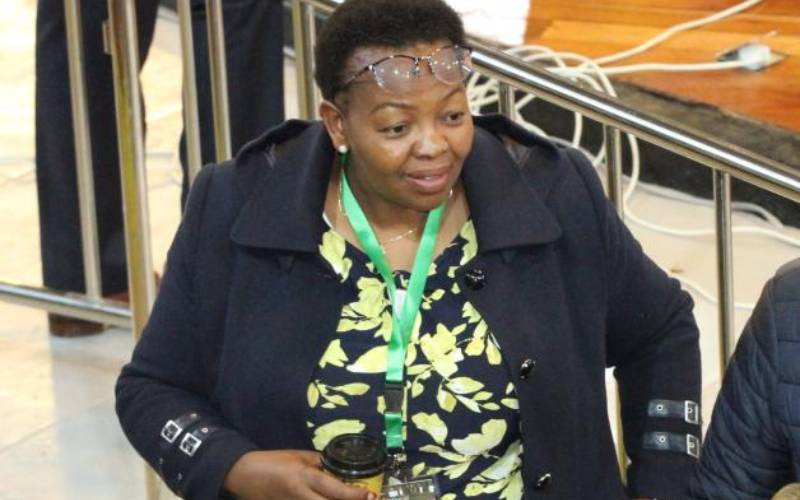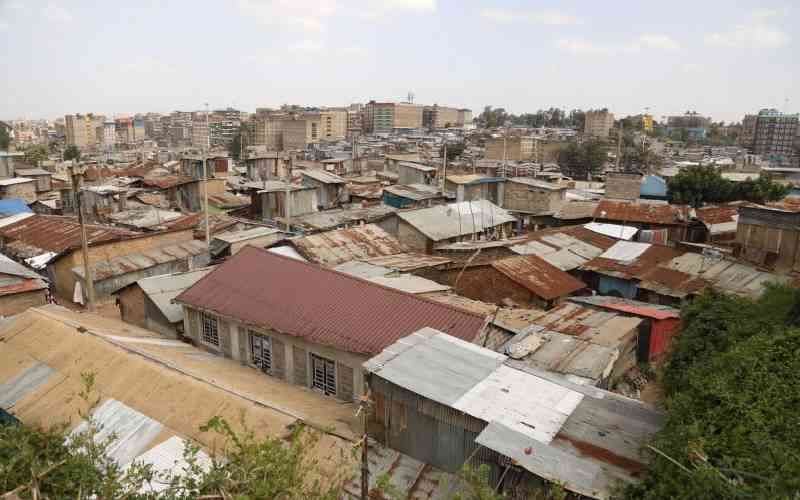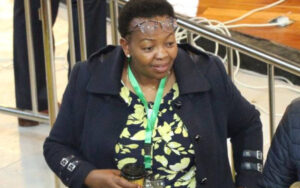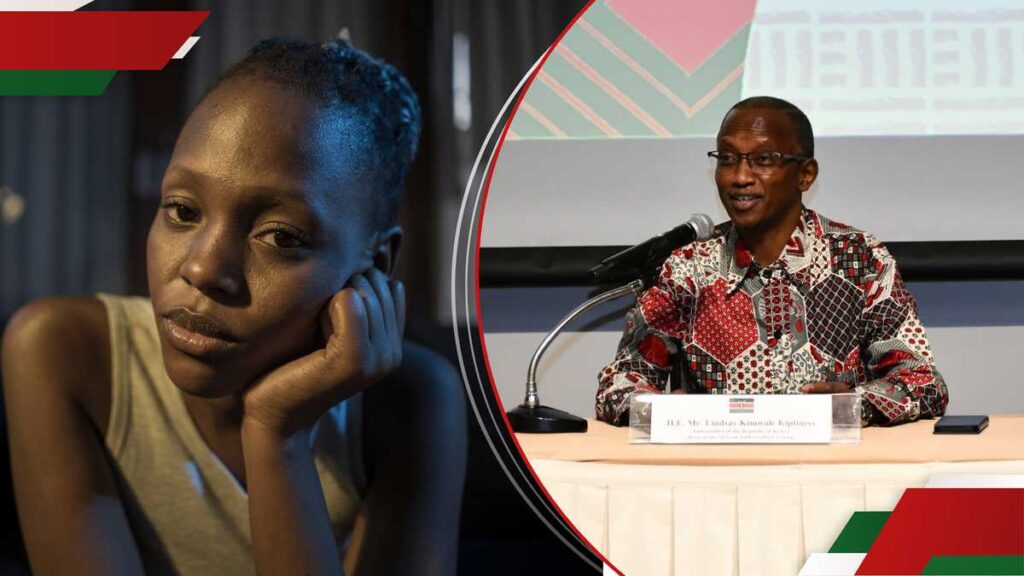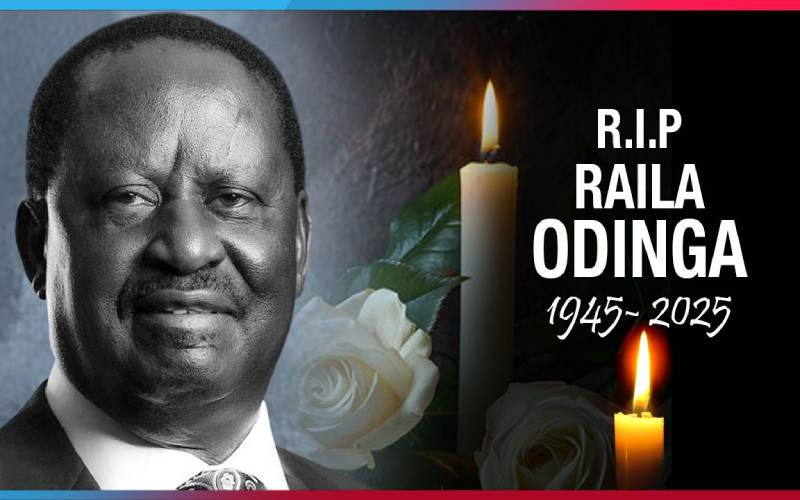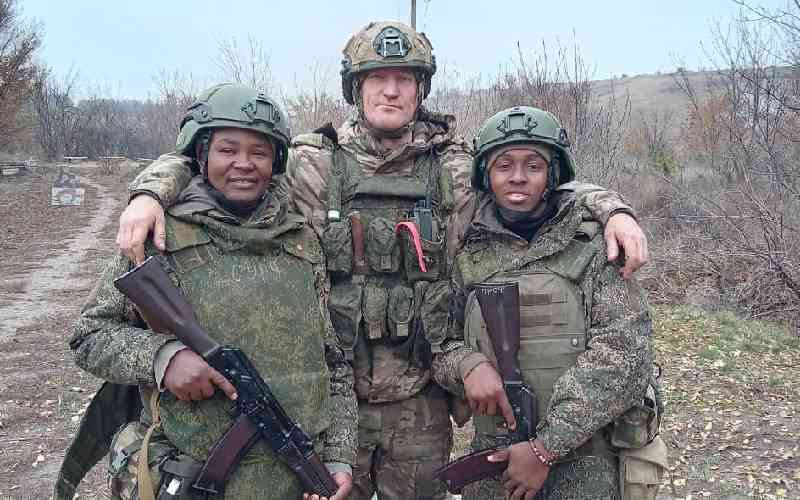They are young, ruthless, and unrepentant. Every time they strike, they leave bloodied bodies and broken families in their wake.
Under the cover of darkness, they prowl the dimly lit alleys of Mathare, swift and merciless. Their weapon of choice? A knife. Their victims? Anyone on their path.
These are the knife gangs of Mathare’s Eastlands—teenage boys, some as young as 17, school dropouts lured into a life of crime. They rule the slums with terror, turning once-bustling streets into no-go zones.
They are known. Feared. Whispers of their identities echo through the settlement, but few dare to speak out.
What began as petty crime has morphed into a brutal, unrelenting wave of violence. Women are widowed. Children are orphaned. Families are shattered. And every week, without fail, Mathare braces for yet another attack—sometimes leaving scars, other times claiming lives.
And the police? They are accused of doing little.
Why has this menace taken root in Mathare? What fuels this brutal cycle of violence?
On the morning of January 20, 32-year-old Michael Omworo became another grim statistic — killed in cold blood on the very street he called home in Mathare 4A area.
The stone mason was walking his four-year-old son to school at 5:45am when horror struck.
Heartbreaking
Out of the shadows, knife-wielding assailants pounced. Without warning, they drove a blade deep into his abdomen—again and again. His son, frozen in terror, watched as his father collapsed, blood pooling beneath him. Moments later, he took his last breath, his life stolen in front of his child.
“I heard someone scream for help. My house is just next to where it happened—it was shattering,” recalled Irene Nyambega, a resident.
“We found him on the ground, bleeding heavily. His son was beside him, clinging to his father’s jacket, crying, begging for someone to save him. It was heartbreaking to watch.”
Omworo and his son lived in a tiny mabati house in the heart of Mathare 4A—a humble home that had been their refuge amid the slum chaos.
Stay informed. Subscribe to our newsletter
His younger brother, Geoffrey Temba, revealed the depth of their bond.
“It was always just the two of them. My brother’s wife left him just days after little James was born. He raised him alone. When James was a baby, he enrolled him in daycare while he worked. When he turned four, he started kindergarten here in the slums. My brother did everything for that boy. He loved him deeply,” said a tearful Temba.
According to residents, Omworo had recently acquired a smartphone on credit. He was still paying for it when he was killed. It appears that this simple device sealed his fate.
“We have many idle youth—they just sit around all day, waiting for darkness to set in. They don’t want to work, only to steal,” said Dennis Mokaya, Omworo’s close friend.
“When he got that phone, we were excited. We’d walk around looking for free WiFi. I’m sure that’s when they noticed it, studied his movements, and plotted to take it,” Mokaya added.
Security expert George Musamali sees the surge in crime as a symptom of deep-seated socio-economic woes.
“Youths have nothing to do, but they must survive. They take the easiest route—mugging. Unless we address the root cause, this will remain a perennial problem,” Musamali explained.
Drug abuse
Life in Mathare is unforgiving. Many residents live on less than a dollar a day, struggling to afford even a single meal. For young men trapped in this reality, crime becomes a way out.
“The government has abandoned us. There are no jobs, no opportunities. Some of us have families to feed. We want to change, but how do we survive?” asked Evans Omondi, leader of Chini ya Mnazi, a group of self-proclaimed reformed criminals.
Drugs and substance abuse have only made things worse, fueling a cycle of addiction, violence and death.
In the wake of Omworo’s murder, anger boiled over. Residents took justice into their own hands. One suspect was lynched by a furious mob. Another is admitted to hospital.
In the same neighborhood, Faith Achieng’, 23, carries the weight of widowhood. In August 2023, her husband was stabbed to death—on the same spot where Omworo was killed. The memories haunt her every step.
“It happened right here, just like Omworo. They stabbed him and walked away as if nothing had happened. Every time I pass this place, it’s like it happened yesterday,” Achieng’ told The Standard.
What pains her most isn’t just the loss—it’s the cruel reality of seeing her husband’s killer roam free.
“I know who killed him. I see him every day. The courts let him walk free and told us to ‘sort it out’ outside. How do you negotiate with a murderer? I’m just a helpless woman. I dropped the case altogether,” she said, her voice laced with frustration and fear.
Her story is a grim testament to a justice system that has failed the most vulnerable.
Human rights defender Hussein Khalid, of Vocal Africa, says Achieng’s case is just one among many.
“When criminals walk free while victims live in fear, it tells you everything about our broken justice system. How does Achieng’ feel, facing the man who killed her husband every day? If we can’t protect the most vulnerable, we have lost as a society,” Khalid said.
He points to a major flaw in Kenya’s legal system—the way evidence is presented in court.
“Our laws require witnesses to testify in open court, often in full view of the accused. That’s why cases collapse. People fear retaliation. We need a system where evidence can be shared without exposing those who come forward,” he said.
Meshack Ondieki, a longtime Mathare resident, has seen this cycle repeat itself for decades.
“Nobody steps forward. Women see these crimes happen, but they stay silent. They’ll tell you, ‘If I talk, my husband will reprimand me.’ That’s why justice is never served here,” Ondieki explained.
For eight years, Veronica Wanja has borne the pain of losing her husband to a ruthless knife gang. The pain hasn’t faded. Neither has the injustice.
Her husband’s life was stolen in a brutal attack—right in the middle of a phone call with her.
“We had just spoken for a long time. I was at the hospital with our child, and he was at home. As we were about to hang up, he said he needed to step out and top up his airtime,” she recalled.
That was the last time she ever heard his voice.
Like Achieng’, Wanja faces the daily torment of seeing her husband’s killer walk freely. Justice remains a distant dream.
“I was told to present evidence. But who will step forward? The man who killed my husband is known—I know him, my children know him. But justice has failed us. We have resigned to fate because our country’s laws cannot protect us,” she said, her voice breaking with emotion.
With no breadwinner, Wanja has been forced into a life of struggle, scraping by to feed her children.
“I take whatever casual jobs I can find—washing clothes, cleaning houses. My rent is overdue, and I don’t know how we’ll make it. We leave it all to God,” she said.
A recent crackdown by a community policing team led to the discovery of an arsenal of crude weapons, believed to have been used to terrorize residents. In the chaos that followed, one suspected gang member was lynched.
“We have no other choice but to take this route. Sadly, we know how the police operate—they’ll arrest him today, but in a few days, we’ll see him walking among us again. That’s just how justice works in this part of the city,” said Peterson, a resident who preferred to remain anonymous.
Mob justice
The rising trend of mob attacks of suspects underscores the deep frustration that many residents harbor. Khalid warns that such actions, while understandable, are dangerous and legally unjustifiable.
“A society where mob justice becomes the solution speaks volumes about the failure of the system. People feel abandoned by the justice system and resort to their own methods of dealing with criminals. But we cannot condone this—everyone is innocent until proven guilty,” Khalid said.
At the heart of the crime wave is drug and substance abuse, with broken families playing a significant role in fueling delinquency.
“We know that some parents are fully aware their children are involved in crime, yet they remain indifferent. That’s why we’ve started warning them—soon, we’ll hold them accountable too,” one resident cautioned.
Security expert Musamali suggests that it’s time to rethink the approach to crime prevention in informal settlements. He advocates for strategies inspired by the Broken Windows Theory, a criminology concept introduced in 1982 by James Q. Wilson and George L. Kelling.
“The Broken Windows approach was successfully applied in New York City in the 1990s under Mayor Rudy Giuliani and Police Commissioner William Bratton to reduce crime rates. It’s a model that could work for us,” Musamali argued.
“It emphasizes addressing crime at the nuclear family level. Parents must intervene when they notice early signs of deviant behaviour in their children. If we don’t deal with the small issues now, they will escalate into bigger problems later,” he added.
Local police have come under fire, accused of turning a blind eye—or in some cases, even abetting— crime.
Muthaiga Police Station, which has jurisdiction over the area, did not respond to our request for an interview regarding these accusations.
“We have lost trust in the police here. We are on our own,” one resident told The Standard.
“There is a clear erosion of trust between the public and the police. Rebuilding this trust will take significant effort,” said Musamali.
As night falls, the fear intensifies. Residents point to broken streetlights as part of the problem—what should be a beacon of safety is now offering criminals the perfect cover.
During our investigation, we discovered that in some cases, it is the criminals themselves who damage the lights.
“Sometimes, the lights are repaired in the morning, but by evening, they’re not working. We suspect criminals tamper with them because they can’t operate in a well-lit community. Darkness is their ally,” said a resident.
Hideouts
Hanging boots on electricity wires serve as a grim reminder of the lives lost to mob justice—most of them young men involved in knife crime.
Stalled vehicles and hollow culverts have become hiding spots for criminals.
Recent government-led demolitions of houses sitting on riparian land have inadvertently given criminals more room to operate. What was intended as a development project has left large open spaces that criminals now use as their hideouts.
“We thought there was a proper plan behind these demolitions, but they’ve only exposed us to more insecurity. The criminals hide there,” said Grace Wanjiru, a resident who was affected by the demolitions.
Bustling market stalls that serve residents during the day transform into dangerous hotspots at night, turning once-busy roads into no-go zones.
Chini ya Mnazi, a community-based group, is composed of former gang members.
However, these ex-convicts now claim to have turned a new leaf. They say over 200 young people have reformed and are now engaged in community projects to support their families. One of their initiatives is managing a toilet and bathroom facility, collecting fees from residents.
Their leader, Evans Omondi, says they are committed to transforming their community for the better.
“This is our home, and we want to protect it. Any youth still engaging in crime should know that crime does not pay—it only leads to destruction,” Omondi said.
Each passing day, the people of Mathare live on the edge, never knowing what might befall them next.
Why do known killers continue to walk freely in this community? It remains a mystery no one can explain.
But the question lingers—how many more lives must be lost before authorities take decisive action?
Mathare does not need another tragic death—yet, it seems dangerously ever close to one.





